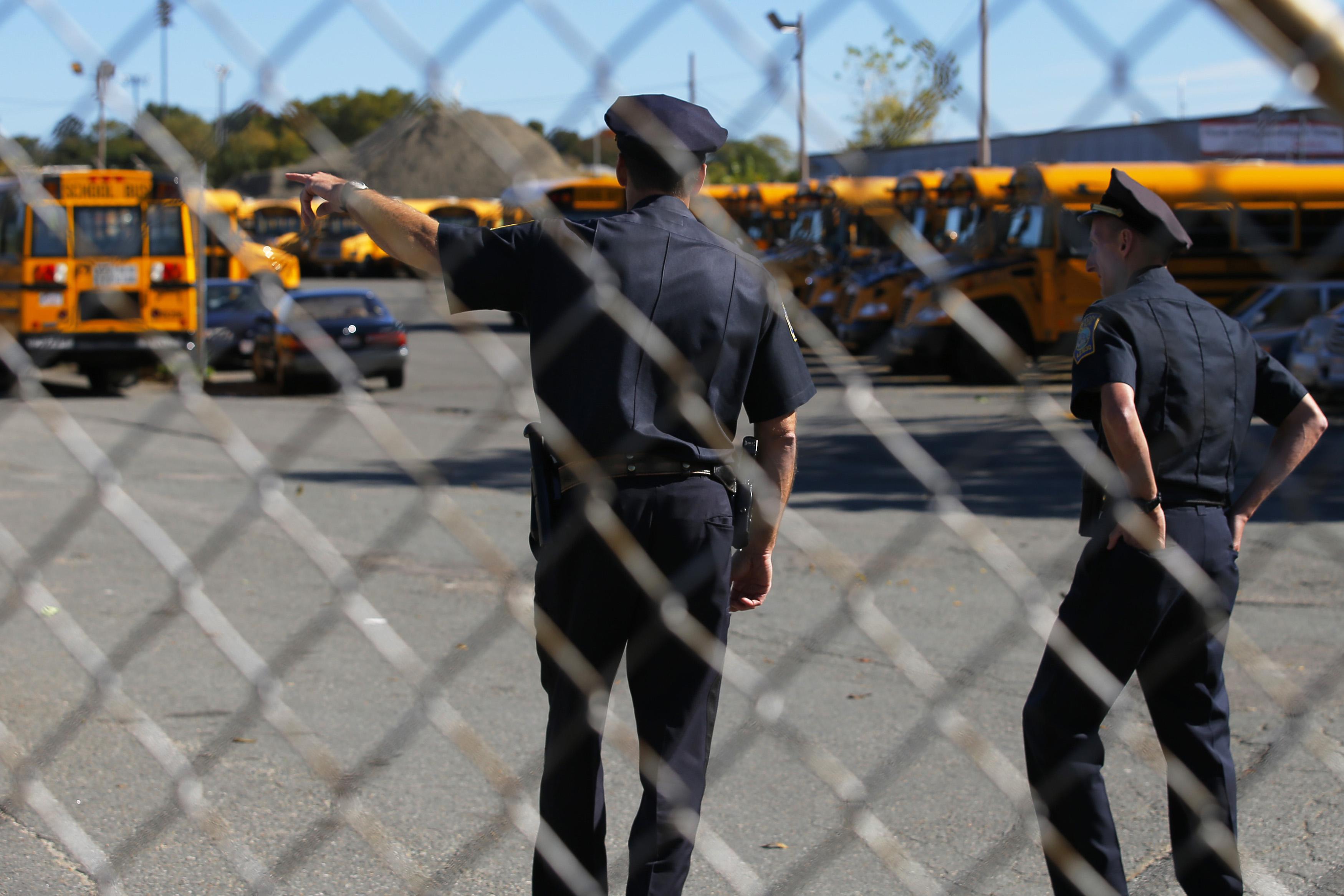Police officers at Boston schools want to start carrying pepper spray in order to better deal with threats from violent students, reports the Boston Herald. According to school police chief Bill Kelley, pepper spray could be used to subdue a school shooter who stops to reload.
Across the country, the changing role of police in schools—and what kinds of weapons they can carry—has been affected by a broader militarization of police forces.
Earlier this fall, the Washington Post reported that more than 120 schools had received hundreds of pieces of equipment and weapons from the Department of Defense via the same program that allowed local police departments to receive such equipment.
Items issued through the program included “at least five grenade launchers, hundreds of rifles and eight mine-resistant, ambush-protected vehicles, the hulking machines designed to withstand the kind of roadside attacks seen in Iraq and Afghanistan.” Major beneficiaries of the program included Los Angeles school police officials, who received dozens of M16 rifles and three grenade launchers, and Florida’s Pinellas County Schools Police Department. Both departments returned some items after criticism. Steve Zipperman, chief of the Los Angeles Unified School District Police, said they’d had the grenade launchers since 2001 but would return them because they were “not essential for our mission.” He defended hanging onto an armored transport vehicle in case of “extraordinary circumstances.” In some cases, like at the University of Central Florida, grenade launchers have been converted to be able to fire tear gas.
Students can receive misdemeanors, fines, and even prison sentences through the judicial system for disruptive behavior and other minor infractions committed in schools. According to the Guardian, Texas police gave nearly 300,000 “Class C misdemeanor” tickets to kids as young as six in 2010. Austin’s school police department was found to be armed with guns, pepper spray, dog units, and sometimes Tasers. The Guardian report also chronicled a disturbing incident in which a mentally disabled boy was charged with assault on a public servant when he lashed out in reaction to being pepper sprayed. From the piece:
According to the department’s records, officers used force in schools more than 400 times in the five years to 2008, including incidents in which pepper spray was fired to break up a food fight in a canteen and guns were drawn on lippy students.
Though relatively innocuous compared with grenade launchers and semi-automatic weapons, pepper spray has brought its own host of problems into schools in several states. In 2011, the Southern Poverty Law Center brought suit against schools in Birmingham, Alabama, because of the alleged wide use of pepper spray as a disciplinary measure. SPLC officials said that pepper spray had been used about 100 times in Birmingham schools in the five years leading up to the suit, and described students pepper sprayed for infractions like cursing and being “loud and boisterous.” Pepper spray has been used as a tool to break up high school fights from St. Paul to St. Louis, with one incident in the latter city leading to the hospitalization of 12 students for chemical exposure, including some students who weren’t even involved in the fight. According to the SPLC lawsuit, pepper spray can aggravate existing respiratory conditions like asthma.
For some law enforcement officers, though, the introduction of pepper spray is seen as a necessity. “Over the last several years we’ve taken 300 knives and several guns,” Sgt. Bill Kelley told the Boston Herald. “Times have changed with school shootings. We can save lives if we have pepper spray.”
